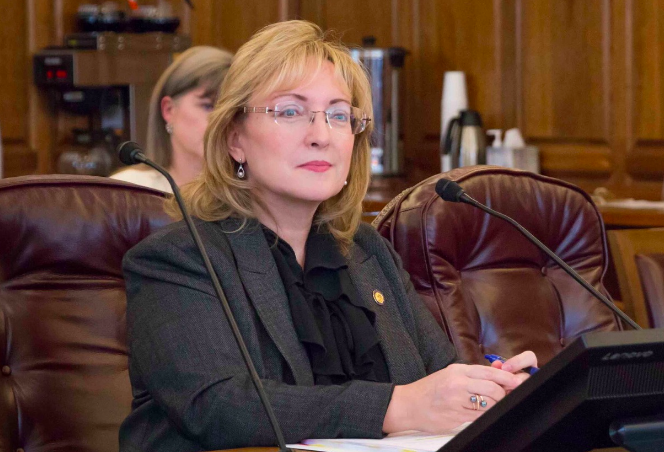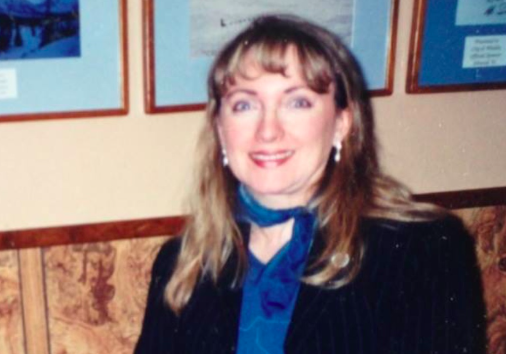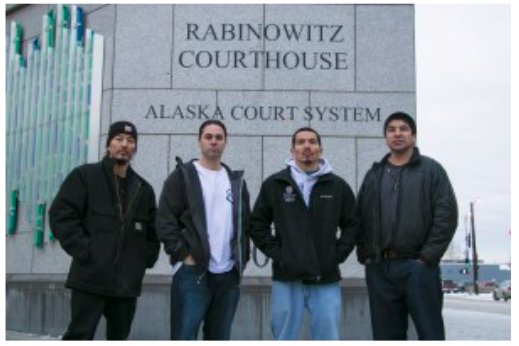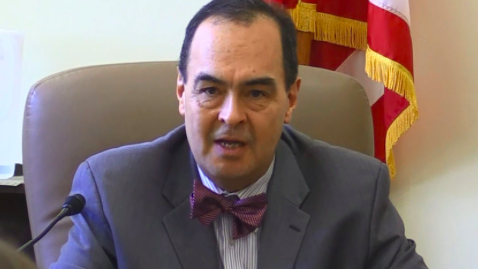ALASKA SCHOOLS ARE PRODUCING A FAILED SOCIAL ORDER
By MICHAEL TAVOLIERO
Our public education system no longer promotes the goal of teaching our children how to think independently, and how to live free, fulfilling, and meaningful lives.
Instead, we now see the products of carefully crafted and controlled manipulation of education to graduate young Socialists who are entitled, unskilled, and politically far-left leaning.
This whole process is controlled by the Democratic Party, the mainstream media, and their willing confederates in the public employees’ unions.
Republicans and conservatives alike share the blame. We have been absent from the education dialogue. We have, at best, issued lukewarm and flaccid rebuttals in protest, and of course, have been ignored. The public employees’ unions have driven the narrative, tilting the political arena more to the left than ever before. They have almost unlimited financial resources, and the political process has quietly been manipulated to help, through independent expenditure groups, mail-in ballots, and (possibly soon) rank choice voting.
There is no excuse for Republican/Conservatives to remain passive. After all, this really is about not only our more and more endangered constitutional rights, but also the future of our children and their children.
The majority of cities in the United States see their school boards and administrations controlled by far-left Democrats and their allies, and have for over half a century. The end result is that every major city is now completely controlled by the Democrat party, particularly unions.
States like California, New York, Illinois, Michigan, Washington, Oregon, Virginia (the state whose constitution was written by George Mason and James Madison among others) and more are now totally controlled by Democrats who control the major population centers and therefore the entire states.
Alaska has become no different. Anchorage has become a state within a state. As evidenced by its mayor and assembly as well as many of its State Legislative representatives (regardless of“D” or “R” designations), our once bountiful natural resources, with their development potential, are being converted and driven into a swamp of red tape, bureaucracy and entitlements. Our education system is promoting every leftist policy as good to our children, and every conservative policy as “evil,” “racist,” and “selfish.”
“Everything that is wrong with inner city schools that policy can fix, Democrats are responsible for. Democrats and their allies run the public school system for the benefit of adults at the expense of children. Put in the language of political war: Democrats have their boot heels on the necks of poor, black, and Hispanic children. But Republicans are too polite to mention it.” – David Horowitz. How to Beat the Democrats and Other Subversive Ideas
Whose fault is this? We need to look at ourselves and see the results of our lack of attention and action. These policies are allowed to take over because of poor Republican/conservative voter turnout and poorer Republican/conservative public involvement.
Our lack of involvement has allowed the growth and takeover by the public employees’ unions, creating an unfair legal standard for the Democrat hatchet machine to proliferate. With seemingly unlimited funds from union dues (we have yet to see the measurable effects of Janus v AFMCME in Alaska), these unions are virtually a political party with no legal political restraints, unlike the current political parties subject to the FEC and state public offices regulators.
Sadly, Democrat-controlled schools are teaching students very little. Students who are a product of this system are moving into their future not with productive and saleable life skills, but with a quiver full of “identity politic” arrows. Our education system should promote a meaningful and independent lifestyle, but instead, it leads to narcissism, sloth, and entitlement with few exceptions.
Alaska is producing a failing social order and it will cost our progeny dearly.
Where is the outrage on the part of Republicans/conservatives? Our urbanity and our “go along, get along” attitude are our demise and consequently our failure, not just to ourselves but to Alaska’s future.
What is more incredible to this edifice of failure is the fact that Republicans/conservatives actually do have an education plan in place. It is not based on the failed social principles we have witnessed year in and year out. No, the Republican/conservative plan is simple and immediately outcome oriented.
Alaska’s school reform is economic choice. By putting the education dollar directly into the hands of parents, schools would be forced to serve their communities and constituents. Giving parents control of their children’s education would force schools and unions to stop exploiting our tax dollars to serve their own interests (instead of the students’). Our tax dollars must be redirected to the parents and follow the children, rather than the special interests of the Democrat/media/public union syndicate.
The goal is to serve our children with a profoundly reformed education and provide them with the education that will give them the best chance for a successful, fulfilling and responsible life. The Left will not listen to these ideas because they will lose the power and the control they crave and must have to stay in power.
This idea was developed in 2013 through the efforts of Senator now Governor Michael Dunleavy.
During the 28th Alaska State Legislature, our state saw for the first time an opportunity to vote up or down on the question of state aid for education reaching the true beneficiaries of education, our children.
SJR 9 proposed amendments to the Constitution of the State of Alaska relating to state aid for education which provided the wording as captioned below, if passed by the State Legislature, would have given the voters the opportunity to amend the state constitution.
It was falsely entitled a voucher program attempt and maligned extensively in the public and the halls of our state capital. This was a typical lefist “sky is falling” canard, calling it a voucher program, instead of what it really was — freedom: Freedom for parents and children to choose. Freedom to use their tax money in a way that would be meaningful to them, not the few, who created a hornet’s nest response to their potential loss of control over public policy and public money.
It was introduced on Feb. 13, 2013 by then-Sen. Dunleavy, and Senators Fred Dyson, Pete Kelly, John Coghill, Cathy Giessel, Lesil McGuire, Charlie Huggins, and Anna Fairclough.
SJR9 had 11 of the 14 votes required, but the education industry is the most powerful lobbying force in Alaska politics. Ironically, Senators Bert Stedman, Gary Stevens and Click Bishop, all Republicans, were the 3 senators who kept SJR9 from coming out of the Rules committee and being voted upon on the floor, in spite of this being part of the Alaska Republican Party platform.
Isn’t time to bring this back to the education discussion? Before you say yes, let me finish with a suggestion and a solution.
Suggestion: Redirect all education funding to follow the child. This can be done by our political will through amending the Alaska Constitution. Give the people of Alaska the opportunity to guide the direction of education policy directly and personally.
Solution: Reintroduce and pass the language of SJR9. Amend Article VII, Sec 1 as follows:
Article VII, sec. 1, Constitution of the State of Alaska, to read: Section 1. Public Education.The legislature shall by general law establish and maintain a system of public schools open to all children of the State, and may provide for other public educational institutions. Schools and institutions so established shall be free from sectarian control.
With this deletion [NO MONEY SHALL BE PAID FROM PUBLIC FUNDS FOR THE DIRECT BENEFIT OF ANY RELIGIOUS OR OTHER PRIVATE EDUCATIONAL INSTITUTION.]
Amend Article IX, Sec 6 as follows:
Article IX, sec. 6, Constitution of the State of Alaska, is amended to read: Section 6. Public Purpose. No tax shall be levied, or appropriation of public money made, or public property transferred, nor shall the public credit be used, except or a public purpose (add as follows); however, nothing in this section shall prevent payment from public funds for the direct educational benefit of students as provided by law.
Michael Tavoliero is a realtor at Core Real Estate Group in Eagle River, is active in the Alaska Republican Party and chairs Eaglexit.












